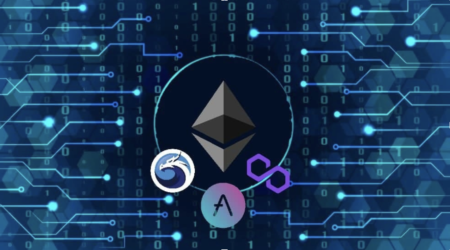The integration of blockchain wallets with AI language models has the potential to revolutionize financial transactions by allowing them to be conducted through straightforward natural language commands. This advancement could simplify and streamline complex processes, making financial interactions more intuitive and accessible.
The unique features of cryptocurrencies are particularly well-suited to meet the intricate demands of machine-to-machine transactions in the burgeoning artificial intelligence (AI) economy. These digital assets provide a level of flexibility and security that is difficult to achieve with traditional financial systems.
A recent report from Bernstein Research, published on Friday, highlights this potential. According to the report, “Crypto solves almost all the criteria” necessary for effective AI-driven payments. The research emphasizes the growing need for transactions that are identity-proven, cross-border, permission-less, and capable of handling micro-payments with almost zero marginal cost. These transactions must also offer instant settlements that align with AI consumption patterns.
In addition, the report suggests that cryptocurrencies could seize a significant share of the AI payments market by enabling greater programmability and financial autonomy for AI agents. Gautam Chhugani, the lead analyst at Bernstein, elaborated on this point, noting that crypto could facilitate these advancements in a way that traditional financial infrastructure cannot.
Currently, financial systems are a patchwork of jurisdiction-specific frameworks interconnected through global cooperative networks like SWIFT. This setup necessitates multiple layers of financial and identity verification for individuals and businesses to open bank accounts and access services. The report poses a critical question: “How would AI agents obtain bank accounts and credit cards without identity?” The current system’s reliance on clear identity documents makes it difficult for AI agents to participate in financial transactions.
A major obstacle to the development of an AI-driven financial economy is the current inability of machines to execute micro-payments efficiently. Micro-payments involve transferring tiny amounts of money with minimal friction, akin to streaming video. The report queries whether it is possible to “stream money in micro sums based on consumption.”
Furthermore, digital dollar stablecoins already play a significant role in the crypto ecosystem, with over $150 billion in circulation on the blockchain and annualized settlement values exceeding $7.5 trillion. Although these stablecoins are primarily used within the crypto-native community, the report suggests they could find new applications within the AI economy.
The potential integration of blockchain wallet systems into Large Language Models (LLMs) represents a crucial starting point for equipping AI agents with cryptocurrency capabilities. This integration could enable users to authorize AI agents to handle financial transactions using simple natural language commands, thus bridging the gap between advanced AI functionalities and practical financial applications.
Ethereum Co-Founder Vitalik Buterin recently announced his decision to donate all proceeds from his cryptocurrency holdings and halt any new token investments, a move that could influence market trends and underscore the evolving landscape of digital currencies and their applications.
The combination of blockchain technology and AI holds transformative potential for the future of financial transactions, offering a more efficient, secure, and programmable approach to meeting the needs of an increasingly digital economy.




